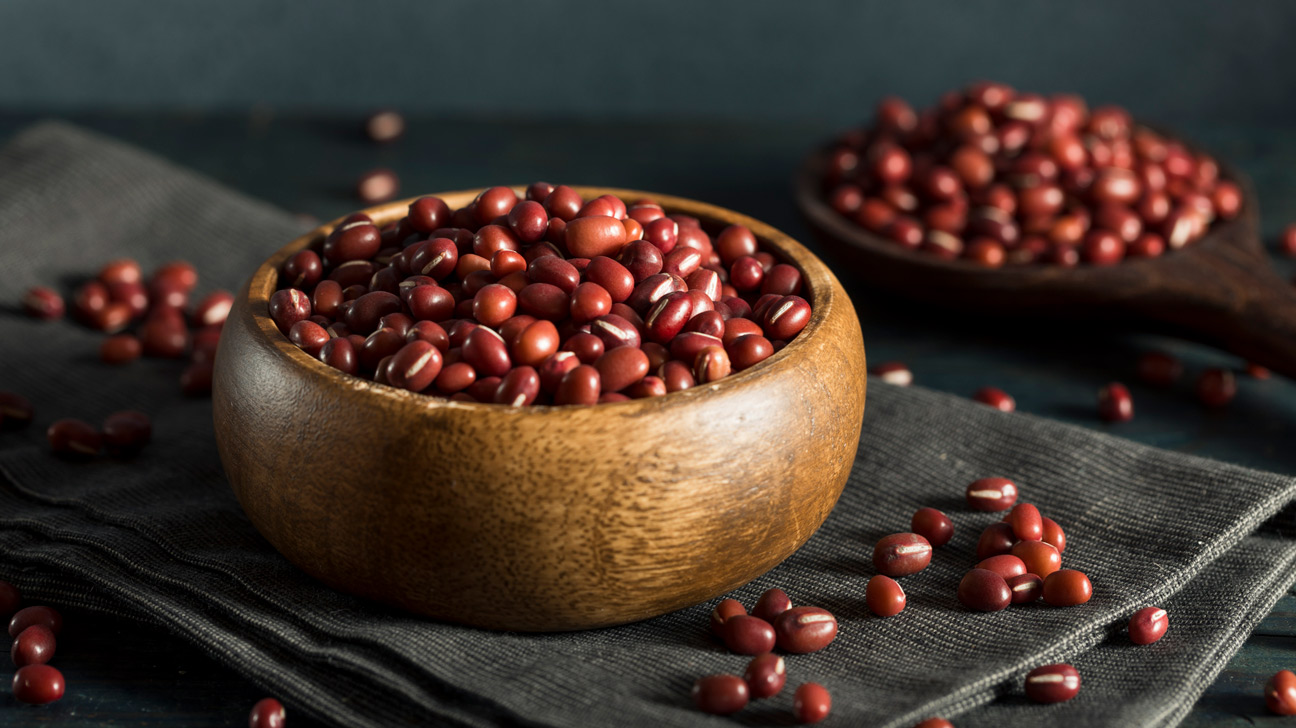Introduction
Adzuki beans, also known as azuki or aduki beans, are small, red beans with origins in East Asia. Despite their modest size, these legumes pack a nutritional punch and offer various health benefits. In this comprehensive guide, we will explore the nutritional profile of adzuki beans, their potential health benefits, and how to cook them to perfection.
Nutritional Profile of Adzuki Beans
Adzuki beans are rich in essential nutrients, making them a valuable addition to any diet. Here’s a breakdown of their nutritional content per 100 grams:
- Calories: 128 kcal
- Protein: 7.5 g
- Carbohydrates: 25 g
- Dietary Fiber: 7.3 g
- Fat: 0.5 g
- Vitamin K: 4.8 mcg (6% DV)
- Folate: 122 mcg (31% DV)
- Iron: 2.3 mg (13% DV)
- Magnesium: 63 mg (16% DV)
- Pbotassium: 437 mg (9% DV)
Health Benefits of Adzuki Beans
Rich in Protein and Fiber
Adzuki beans are an excellent source of plant-based protein, making them a valuable option for vegetarians and vegans. Additionally, they are high in dietary fiber, which promotes digestive health, regulates blood sugar levels, and supports weight management.
Supports Heart Health
The fiber, potassium, and folate content in adzuki beans contribute to heart health by helping to lower cholesterol levels, regulate blood pressure, and reduce the risk of cardiovascular disease.
Provides Essential Nutrients
Adzuki beans are packed with essential nutrients like iron, magnesium, and folate, which are vital for energy production, immune function, and overall well-being.
Promotes Weight Management
Due to their high fiber and protein content, adzuki beans can help promote feelings of fullness and satiety, making them a valuable addition to weight management diets.
Supports Digestive Health
The fiber content in adzuki beans supports digestive health by promoting regular bowel movements, preventing constipation, and nourishing beneficial gut bacteria.
Culinary Uses of Adzuki Beans
Adzuki beans are versatile and can be used in a variety of culinary applications. Here are some popular ways to incorporate them into your meals:
Soups and Stews
Add cooked adzuki beans to soups and stews for added texture, flavor, and nutrition.
Salads
Toss cooked adzuki beans with mixed greens, vegetables, and a flavorful dressing for a nutritious salad.
Curries
Use cooked adzuki beans as a protein source in Indian-inspired curries and dals.
Desserts
Sweetened adzuki bean paste is a popular filling for Asian desserts like mochi and buns.
Burgbers and Patties
Mash cooked adzuki beans with herbs and spices to make vegetarian burgers or patties.
How to Cook Adzuki Beans
Cooking adzuki beans is simple and can be done on the stovetop or in a pressure cooker. Here’s a basic stovetop method:
Ingredients
- 1 cup dried adzuki beans
- Water
- Salt (optional)
Instructions
Rinse and Soak
Rinse the dried adzuki beans under cold water to remove any debris. Place them in a bowl and cover with water. Let them soak for at least 4 hours or overnight. Drain and rinse before cooking.
Cook
Transfer the soaked beans to a pot and cover with water (about 2 inches above the beans). Bring to a boil, then reduce the heat and simmer, partially covered, for 45 minutes to 1 hour, or until tender. Add more water if needed.
Season
Once cooked, season the beans with salt if desired. Use them immediately in recipes or store them in the refrigerator for up to one week.
Frequently Asked Questions (FAQs)
Are adzuki beans gluten-free?
Yes, adzuki beans are naturally gluten-free, making them suitable for individuals with gluten intolerance or celiac disease.
Can I use canned adzuki beans instead of dried?
Yes, canned adzuki beans are a convenient alternative to dried beans and can be used in recipes that call for cooked adzuki beans. Just be sure to rinse them before using to remove excess sodium.
Are adzuki beans high in carbohydrates?
While adzuki beans do contain carbohydrates, they are lower in carbs compared to many other beans, making them suitable for low-carb diets.
Can I freeze cooked adzuki beans?
Yes, cooked adzuki beans can be frozen for future use. Allow them to cool completely before transferring to freezer-safe containers or bags. They can be stored in the freezer for up to 6 months.
Can I sprout adzuki beans?
Yes, adzuki beans can be sprouted by soaking them in water for 8-12 hours, then draining and rinsing them twice a day until sprouts form (usually 2-4 days). Sprouted adzuki beans are nutritious and can be added to salads and sandwiches.
Are there any potential side effects of consuming adzuki beans?
While adzuki beans are generally safe to eat, some people may experience digestive discomfort such as gas or bloating, especially if they are not used to consuming beans regularly. To minimize these effects, start with small portions and gradually increase intake.
Conclusion
Adzuki beans are a nutritious and versatile legume that can be easily incorporated into a variety of dishes. With their rich nutritional profile and numerous health benefits, adzuki beans are a valuable addition to any diet. Whether enjoyed in soups, salads, or desserts, adzuki beans offer a delicious way to boost your nutrient intake and support your overall health and well-being.
- NCTF 135 HA: A Breakthrough In Anti-Aging Treatments In Kingston - June 1, 2025
- The Growing Demand For THC Beverages Among Gen Z - May 31, 2025
- Skin Pen Microneedling Near Albury, Surrey - May 31, 2025




